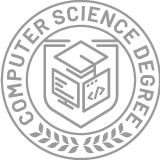Graduate Certificates in Data Processing
Featured schools near , edit
Education Levels of Data Processing Majors
In 2020-2021, 4 graduate certificates were awarded to data processing majors. This earns it the #10 spot on the list of the most popular graduate certificate programs in the nation.
The following table shows the number of diplomas awarded in data processing at each degree level.
| Education Level | Number of Grads |
|---|---|
| Associate Degree | 814 |
| Basic Certificate | 615 |
| Master’s Degree | 199 |
| Bachelor’s Degree | 170 |
| Undergraduate Certificate | 151 |
| Graduate Certificate | 4 |
| Doctor’s Degree | 2 |
Earnings of Data Processing Majors With Graduate Certificates
We are unable to calculate the median earnings for data processing majors with their graduate certificate due to lack of data.
Student Debt
We do not have the data to calculate the median and range of debt loads for data processing students who are graduate certificate holders.
Student Diversity
A graduate certificate in data processing is about equally as popular with men as it is with women.
| Gender | Number of Grads |
|---|---|
| Men | 2 |
| Women | 2 |

The racial-ethnic distribution of data processing graduate certificate students is as follows:
| Race/Ethnicity | Number of Grads |
|---|---|
| Asian | 0 |
| Black or African American | 0 |
| Hispanic or Latino | 1 |
| White | 1 |
| International Students | 1 |
| Other Races/Ethnicities | 1 |

Most Popular Data Processing Programs for Graduate Certificates
There are 5 colleges that offer a graduate certificate in data processing. Learn more about the most popular 5 below:
Walden University tops the list of the most popular school in the U.S. for data processing majors who are seeking their graduate certificate. Each year, around 49,600 students seeking various degrees attend the university. The average in-state tuition for full-time undergraduates is $10,064 per year, while in-state graduate students, on average, pay $9,651 per year. For the 2020-2021 academic year, 2 graduate certificates were handed out to data processing majors at Walden University.
Missouri University of Science and Technology is the 2nd most popular school in the nation for students seeking a graduate certificate in data processing. The average in-state tuition for full-time undergraduates is $9,960 per year, while in-state graduate students, on average, pay $10,452 per year. For the 2020-2021 academic year, 1 graduate certificates were handed out to data processing majors at Missouri University of Science and Technology. Around 100% of these students were from an underrepresented racial-ethnic group, and 100% were women.
University of Nevada - Las Vegas is the 2nd most popular school in the nation for students seeking a graduate certificate in data processing. The average in-state tuition for full-time undergraduates is $7,949 per year, while in-state graduate students, on average, pay $5,823 per year. For the 2020-2021 academic year, 1 graduate certificates were handed out to data processing majors at UNLV.
Data Processing Concentrations
| Major | Annual Degrees Awarded |
|---|---|
| Data Processing Technology | 4 |
Explore Major by State
Alabama
Arkansas
Connecticut
Florida
Idaho
Iowa
Louisiana
Massachusetts
Mississippi
Nebraska
New Jersey
North Carolina
Oklahoma
Rhode Island
Tennessee
Vermont
West Virginia
Related Majors
Below are some popular majors that are similar to data processing that offer graduate certificates.
| Major | Annual Degrees Awarded |
|---|---|
| Information Technology | 1,452 |
| Computer Information Systems | 772 |
| Computer Software Applications | 483 |
| Information Science | 344 |
| Computer Science | 197 |
References
*The racial-ethnic minority student count is calculated by taking the total number of students and subtracting white students, international students, and students whose race/ethnicity was unknown. This number is then divided by the total number of students at the school to obtain the percentage of racial-ethnic minorities.
- College Factual
- National Center for Education Statistics
- O*NET Online
- Bureau of Labor Statistics
- Image Credit: By Kenneth Jensen under License
More about our data sources and methodologies.
Featured Schools
 Request Info
Request Info
|
Southern New Hampshire University You have goals. Southern New Hampshire University can help you get there. Whether you need a bachelor's degree to get into a career or want a master's degree to move up in your current career, SNHU has an online program for you. Find your degree from over 200 online programs. Learn More > |




